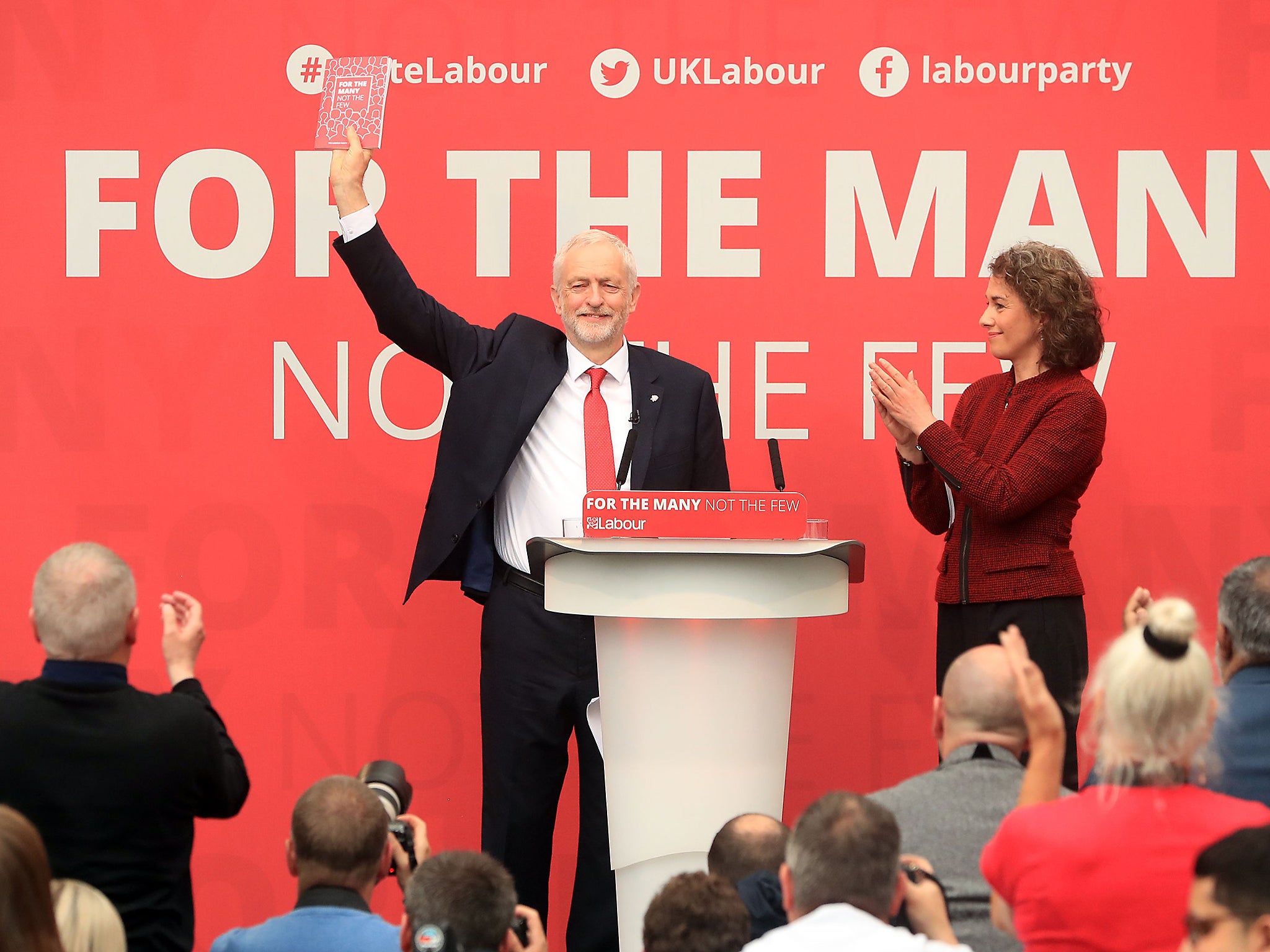Labour’s manifesto will be popular, but this election is about trust, not policies
Personal trust matters and the Tories have inevitably framed this election as ‘May versus Corbyn’ to attack Labour’s weak spot


In focus group discussions involving small groups of voters, people still say: “The politicians and the parties are all the same.” Yet the Labour manifesto launched today shows that this criticism is out of date. No one can say the people do not have a clear choice at this election. The gulf between the two main parties is at its widest since 1983.
Last week’s leak of a draft version of Labour’s programme means that most immediate attention will focus on a seven-page document listing how the £48.6bn of commitments will be paid for, rather than the 114-page manifesto itself. A largely hostile media would in any case have focused on Labour’s proposed tax rises, so the leak probably did the party no harm. It ensured more coverage of Labour’s main policies; the menu without prices may well have bolstered the Labour core vote, and ensured a small rise in the opinion polls.
Corbyn is right to fight on a manifesto that, with the exception of the Trident nuclear weapons system, is true to himself, rather than try to pretend to be something he is not. In 2015, Ed Miliband claimed to be both “radical and credible”, but the left of his party judged him not radical enough and elected Corbyn to succeed him, while the voters judged him not credible enough.
Echoing Miliband, Corbyn insisted his prospectus was both “radical and responsible”. But today’s manifesto offers radicalism without worrying (too much) about credibility.
A pledge to return the privatised water industry to state ownership has been added at the last minute, but John McDonnell, the shadow Chancellor, struggled to explain in media interviews how it would be funded. There is no price tag in the costings document for it or the plans to take rail, the Royal Mail and parts of the energy sector back into public ownership.
The long shopping list might look like the manifesto of a party that knows it has no hope of winning power, rather like the Lib Dems. Yet Corbyn’s Labour would not have produced a different manifesto even if the party was neck and neck with the Conservatives in the opinion polls.
So Corbyn deserves full marks for authenticity and commendable honesty in admitting taxes would rise for the top 5 per cent of earners to raise £6.4bn. Labour would lower the threshold for the 45p rate from £150,000 to £80,000 a year and bring back a 50p top rate on earnings above £123,000.
The tax proposals are fair. The Conservatives would probably have to raise taxes just to maintain existing public services but will be reluctant to admit that.
However, Labour’s “excessive pay tax” for employers levied on salaries of £330,000 a year might not raise £1.3bn as planned because companies would probably find a way round it. Similarly, the pledge to bring in £6.5bn by tackling tax avoidance is not bankable when the low-hanging fruit has already been picked. The biggest revenue-raising measure – £19.4bn from corporation tax on company profits – might also raise less in practice.
Labour is open to the charge of throwing some money at people who don’t really need it – abolishing university tuition fees, free school meals for all primary pupils and maintaining the “triple lock” that ensures that the state pension rises by at least 2.5 per cent a year. It would have been better to target the £48.6bn on an all-out attack on the inequality Corbyn rightly wants to tackle.
The extra £7.6bn a year for health and social care and £6.3bn for schools is needed and welcome, though Labour says little about reform needed to make the money go further to meet the huge challenges facing the NHS.
Answering questions about his own dire ratings at the manifesto launch, Corbyn argued that strong leadership does not necessarily mean “shouting, dictating and instructing”. In effect, he is asking voters to trust Labour to implement policies that reflect its still popular values, even if they don’t see him as a credible prime minister. But personal trust matters and the Tories have inevitably framed this election as “May versus Corbyn” to attack Labour’s weak spot.
However popular the measures in the Labour manifesto may be, many people will not vote for a party’s values until they are satisfied that it can be trusted, notably on the economy. The uncertainty caused by Brexit will make them even more likely to opt for the apparent stability offered by Theresa May rather than take a chance on Labour.

Join our commenting forum
Join thought-provoking conversations, follow other Independent readers and see their replies
Comments